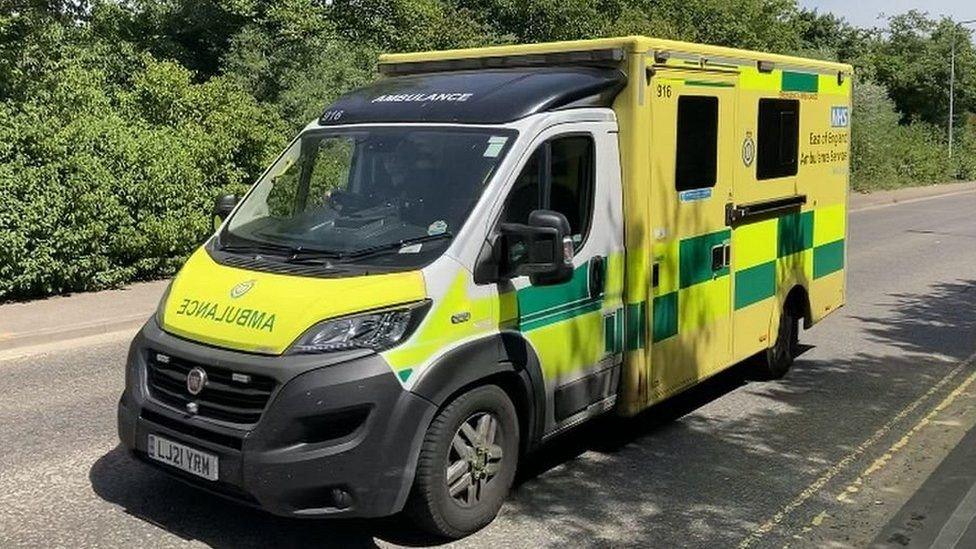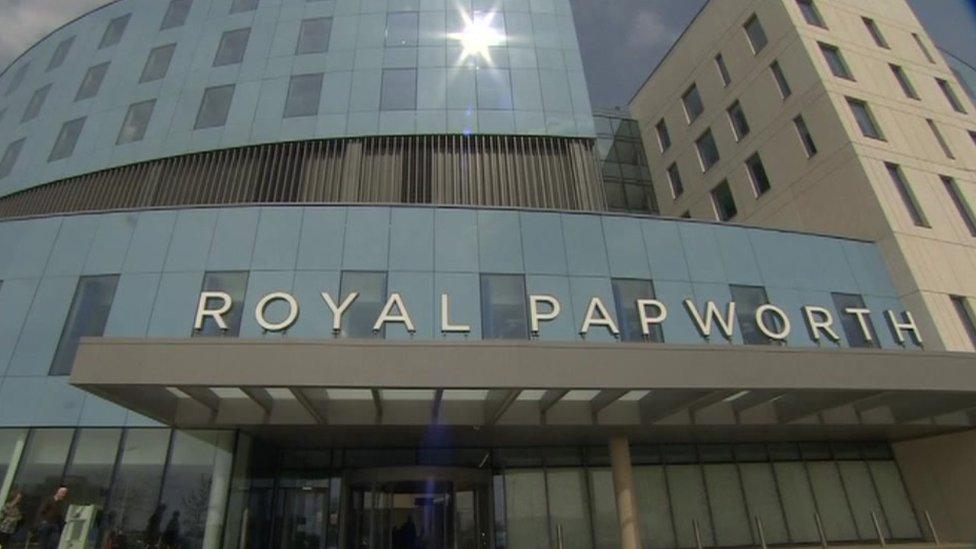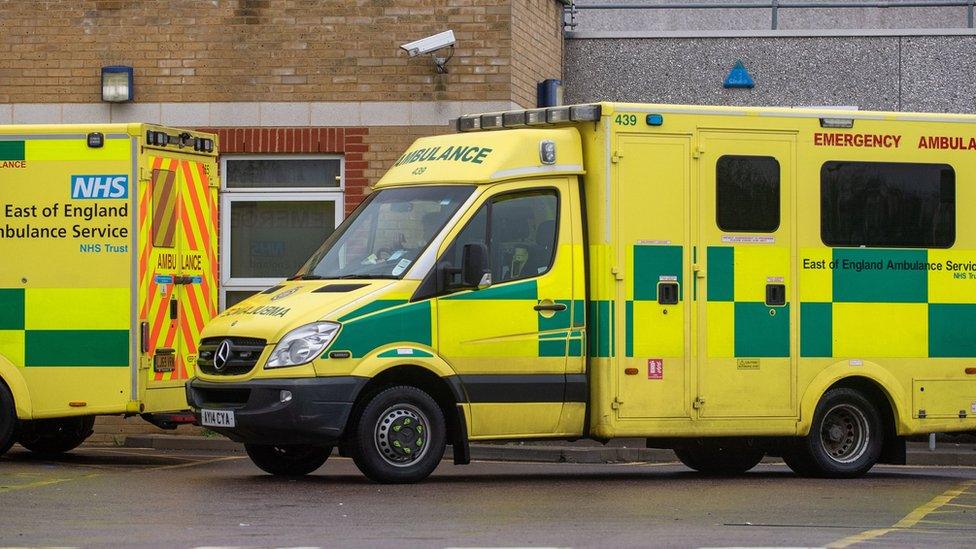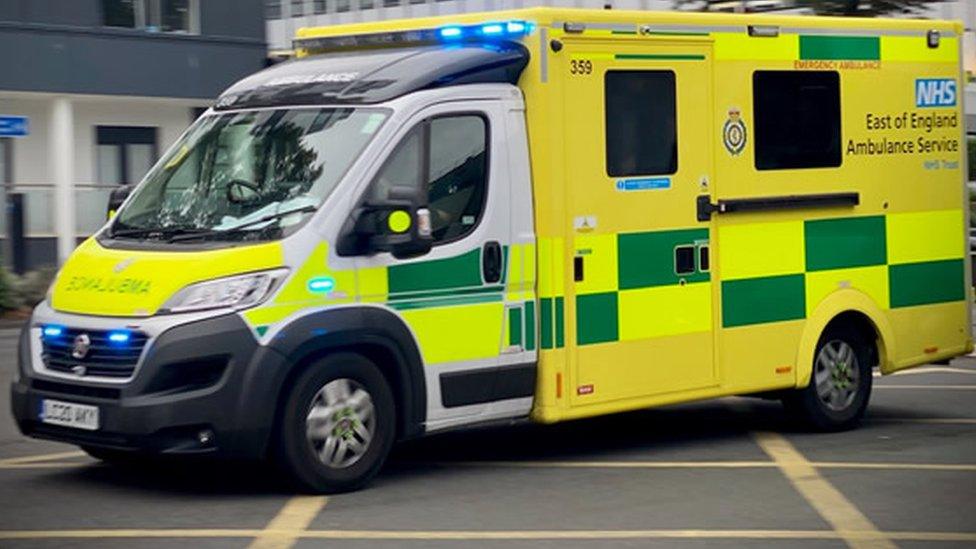Ambulance transfer delays are 'matter of concern', coroner warns
- Published

There have been eight prevention of future death reports regarding delays to ambulances in the East of England this year
The availability of ambulances to transfer patients to specialist units is a "matter of concern", a coroner has warned.
Darren Stewart, area coroner for Suffolk, made the comments in a Prevention of Future Deaths report.
It followed the death of 84-year-old Dennis King, who waited three hours to be transferred from West Suffolk Hospital to Royal Papworth in 2022.
An ambulance spokesperson has apologised for the delayed response.
Mr King had made his own way to the West Suffolk Hospital's accident and emergency department in December 2022, after being told an ambulance could take six hours to arrive at his home due to high demand in the area, the report (PFDR) said.
His call had been graded as category two, which should have led to a response within 40 minutes - or a target of 18 minutes.
After tests at West Suffolk Hospital showed Mr King had suffered a STEMI heart attack, emergency clinicians liaised with experts from the regional heart unit and decided he needed an urgent transfer to Royal Papworth in Cambridgeshire.

Royal Papworth Hospital NHS Foundation Trust is the UK’s leading heart and lung hospital
The report said a matron at West Suffolk told ambulance call handlers they needed an urgent transfer - but because Mr King was classed as being in a "place of safety", control room staff said the delay would be "several hours".
Mr King needed a procedure to unblock an artery. He died from complications in surgery.
Royal Papworth Hospital is the regional specialist heart and lung centre for the East of England and is 33 miles from Mr King's local hospital in Bury St Edmunds.
Mr Stewart said he would be writing to the East of England Ambulance Service NHS Foundation Trust (EEAST), the secretary of state for Health and the Chief Executive of NHS England.
He said: "the availability of ambulances to carry out transfers in a timely manner, in urgent cases" was "a matter of concern".

Analysis - BBC East Health Correspondent, Nikki Fox
The reason this is important is because the the direction of travel for the NHS is more specialist centres for different health conditions. The NHS says these improve outcomes for patients, because staff do a higher number of the same kind of procedures. For example, Addenbrooke's is a regional centre of excellence for organ transplantation and paediatrics. This is also seen as a way of utilising staff at a time of skills shortages. However, the coroner raises concerns around whether this should be the way forward, if ambulances are not available to transfer patients. He wants a more thorough plan to make sure these patients are prioritised. Otherwise people are left without treatment or transport.

In the report, Mr Stewart said the circumstances of the case "raised concerns about the NHS approach to centralising care in regional centres" if the means to deliver it were "inadequate".
An EEAST spokesperson said: "We are very sorry for the delayed response to Dennis King.
"At the time, the Trust was under significant operational pressure. This was due to hospital handover delays."
The trust said response times had improved in 2023 and they had introduced a dedicated phone line for clinicians to escalate their concerns.

Follow East of England news on Facebook, external, Instagram, external and X, external. Got a story? Email eastofenglandnews@bbc.co.uk, external or WhatsApp 0800 169 1830
- Published18 January 2024

- Published14 December 2023

- Published29 November 2023

- Published24 November 2023

- Published14 November 2023
